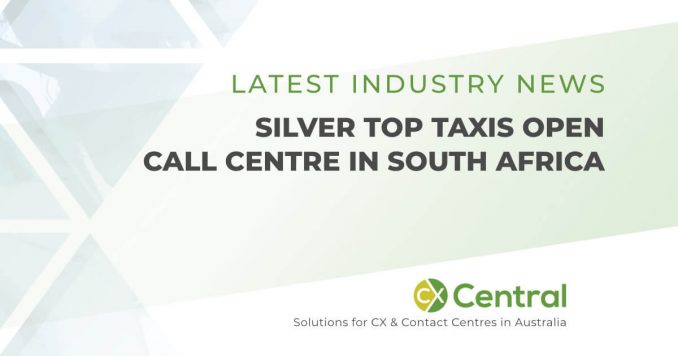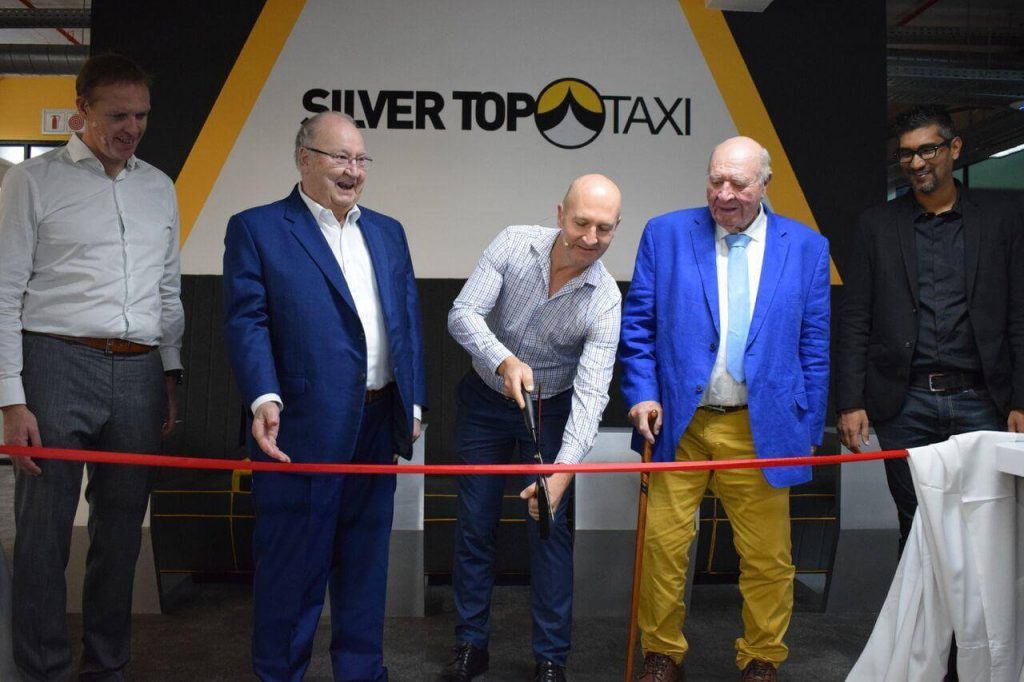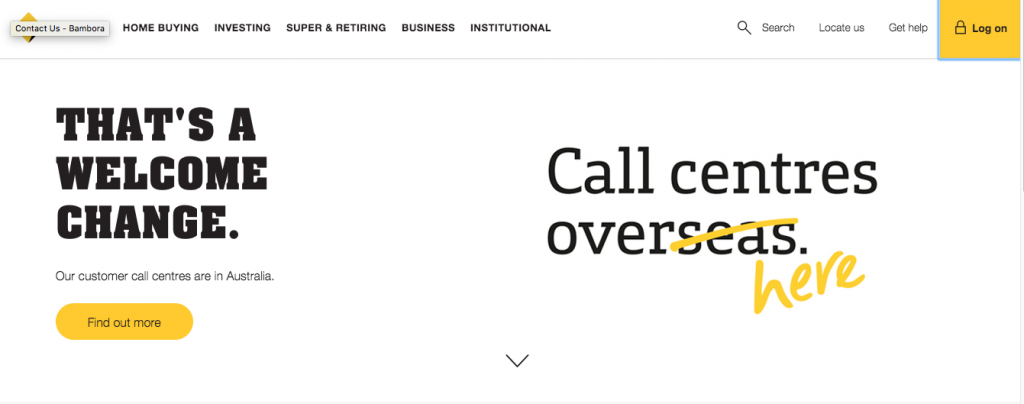
Silver Top Taxis open South Africa call centre
In a blow to the local Australian call centre industry, Melbourne-based Silver Top Taxis have announced the opening of a South Africa call centre to handle their incoming taxi booking calls.
South African outsourcer Merchants announced they have secured the work of Silver Top Taxis on their website who “launched the operation to strengthen its existing support structure, while creating new job opportunities for South Africa’s unemployed”.
Whilst its a blow our local call centre jobs market, for South Africa where unemployment rates hover around 27% the additional call centre jobs is great news.
Merchants’ MD George Todd said “Silver Top Taxi’s investment will ensure more people are able to provide for their families and add value to their wider communities”.
South Africa is increasingly picking up more Australian call centre work (often at the expense of the Philippines) with a native English speaking workforce, competitive pricing and well-developed infrastructure and telecommunication capabilities along with some healthy Government incentives.
Companies such as iSelect, iiNet and Foxtel all have call centre operations in South Africa and there are more companies currently exploring the option. (Editor: note that as of 2020 all three of those companies have exited OUT of South Africa)

Why do call centres move offshore?
The primary driver for businesses sending their call centres offshore is not for a better customer experience.
With offshore call centres typically saving between 25% to 70% as compared to an Australian based call centre, the driving motivation is to reduce costs.
There is however some flow on advantages on having a cheaper call centre operations which can include being able to open longer hours, having more staff (which can reduce wait times) or the business can pass on the lower costs to customers making the business more price competitive.
The cheaper pricing for using an offshore call centre however can and often does impact on the customer experience so ultimately each business needs to decide whats most important to them.
I explored this in one of my recent articles about whether a call centre country location really matters that reveals the pros and cons in more detail.
Will there be any call centres left in Australia?
Everyone I speak to seems to have an experience about dealing with offshore call centres however data from the recent Australian Contact Centre industry report suggests that for businesses who do outsource some or all of their call centre, 78% outsource onshore (within Australia) so its not as widespread as you would believe.
The same report revealed that the Philippines, as an offshore location, has reduced from 30% in 2014 down to 19% in 2018 and as I wrote recently, it would appear the gloss is certainly coming off the appeal of outsourcing to the Philippines.
Whilst it appears offshoring to the Philippines is declining, the Philippines is still the most popular country choice as compared to other destinations like New Zealand, India, South Africa and Fiji.
A recent trend is for businesses that have Australian based call centres to actively promote it.
In case you’ve missed it, the Commonwealth Bank have recently been heavily promoting their Australian based call centres across all media channels.

While the exposure for our local call centre industry is great, the driver for the Commonwealth Bank has nothing to do with supporting the call centre local industry or by being a good corporate citizen.
They understand the link between great customer support and profitability.
So using an Australian based call centre is good for business and at least for their customers, they value being able to speak to a local call centre operator if and when they need support.
With the global marketplace shrinking at an ever-increasing rate thanks to technology, in markets that are heavily commoditised (like banking) the customer experience is becoming the key differentiator between brands so I expect we will continue to see companies investing in improving their customer service as a way of winning and retaining customers.
Do we even need call centres anymore?
With the rapid uptake of apps and chatbots, it would appear on the surface that the call centre industry is in rapid decline.
Whilst advances in technology may lead to fewer jobs in the future, the current trend suggests that rather than eliminating jobs, it’s just changing the traditional call centre job functions.
Some of the changes in the call centre industry include:
- The functions of the call centre are changing. No longer is it just phone calls. The modern contact centre (as they are now known) not only handles phone calls but typically they now also handle live chat, social media, emails and even video chat. This is driving a change in the skill sets required of call centre agents with flow-on effects to recruitment, training and support systems.
- The complexity of call centre work is increasing. The traditional ‘simple’ enquiries are now increasingly being handled through self-service technology (e.g. searching the internet for answers, via an app or ‘talking’ to a chatbot) meaning the complexity of calls that do come into the call centre are becoming increasingly complex. For example, you can now get your bank balance, make payments, change your withdrawal limits etc all through an app which previously would have required a phone call. Now when you have to make contact with the bank via the call centre it’s normally because the app has failed or its because you are unable to resolve your issue via self-service.
- Talk times are increasing. As the complexity of the phone calls is increasing, so with it are the talk times (times spent on the phone call to the customer). Its because of this that staffing levels in the call centre are not actually declining even though the call volumes themselves may have declined.
- The call centre is often the only point of contact. There are more and more businesses that don’t have a retail front so the entire customer contact is handled through the contact centre. From big companies like Amazon and Uber through to millions of SMEs, the customer experience is defined by what happens on the other end of the call, email, tweet etc.
Conclusion
With increasing competition from ride-sharing apps there is no doubt the Taxi industry is under siege and looking to streamline their operational costs wherever possible.
Comparing the costs of running a call centre in South Africa to Australia it’s easy to see the immediate attraction.
As we alluded to above, with more and more people comfortable with ordering Taxi’s via self-service apps or the website, the need to ring becomes increasingly reserved for more complex situations.
I was at a function recently when one of the keynote speakers was describing the poor experience they had when recently ordering a maxi-cab via the internet.
When the maxi-cab didn’t show up on time (which was initially ordered using the app) they called the call centre for help, desperate to understand how far away it was as they had flights to catch.
The call was taken offshore, and despite the pickup location being a well-known Melbourne suburb, the call centre operator had absolutely no concept about how or where the suburb was so it took over 5 minutes just to explain something which would have been obvious to a local.
Its that moment of truth where the call centre experience can make or break the entire reputation of the business and in this situation where every minute counted, those 5 minutes explaining the location was a very much unwanted stress.
I’m not sure about you but I’d want that experience to be as easy as possible for the customer.
Ordering Taxis often requires an understanding of the local area, weather conditions, road works etc so along with the potential for some language barriers and that seems like its rolling the dice a little.
Whether or not it proves to be the right strategy or whether this just drives more customers away I guess time will tell.
Silver Top Taxis were approached for comment but declined to comment.
If you’d like to contact Silver Top Taxis their number is 131 008.
Recommended reading: Why call centres are moving offshore
Find a list of Call Centre Outsourcers and BPOs where you can filter by country and skills/expertise on the free CX Directory >





Be the first to comment